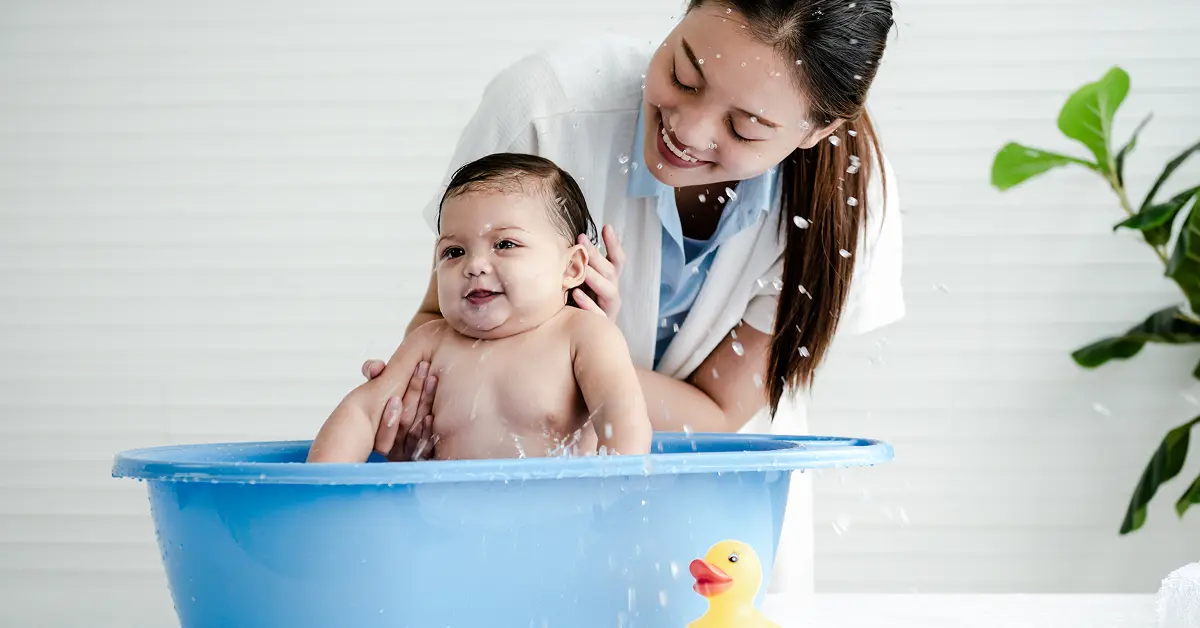Bathing a baby is not just a routine task—it's an important opportunity for bonding, soothing, and keeping your little one healthy. However, for many parents in India, especially first-time parents, bath time can be intimidating. Questions like “How do I hold the baby?”, “What temperature should the water be?”, and “What products are safe?” often create anxiety.
Professional caregivers and nannies are trained to manage baby bath time with ease, ensuring both hygiene and safety. If you’re a parent who wants to manage this task like a pro, or if you’re relying on help from a trained caregiver, here are essential tips for a safe, calm, and effective baby bath time experience.
Choose the Right Time
Babies are sensitive to changes in routine. Choose a time when your baby is calm and not too hungry or sleepy. Most caregivers suggest mid-morning or early evening as the best times for a bath. After a bath, babies often feel relaxed and ready for a nap, making it perfect to include as part of a sleep routine.
Prepare Everything in Advance
Professional caregivers always prepare all essentials beforehand to avoid leaving the baby unattended. Make sure to keep the following ready:
- Warm water (around 37°C)
- Soft towel and fresh clothes
- Baby shampoo and body wash
- Diaper and rash cream
- Bathing mat or tub
- Washcloth or sponge
Maintain Ideal Water Temperature
In India, where seasons change dramatically, it's important to adjust water temperature accordingly. In summers, lukewarm water is perfect. In winters, slightly warmer water is ideal but should never be hot. Always test the water on your wrist or elbow before placing the baby in the tub.
Ensure a Safe Bathing Environment
Professional caregivers are taught to make the environment baby-friendly. Use a non-slip bathing mat or a baby bath tub. The room should be warm and free from cold drafts, especially in air-conditioned homes. Keep all sharp or harmful objects away from the bathing area.
Handle the Baby with Confidence
Newborns are delicate, and their neck muscles are not fully developed. Hold your baby with one hand supporting the neck and head, and use the other to clean. Many Indian mothers and professional nannies use the traditional 'lap bath' method where the baby is bathed on the mother or carer’s lap over a wide basin. Whichever method you use, make sure the grip is secure and gentle.
Use Gentle and Natural Products
Choose tear-free, dermatologically tested, and paraben-free baby products. Popular Indian brands like Himalaya, Sebamed, Mamaearth, and Johnson’s offer baby-safe products. Using products with natural ingredients like neem, aloe vera, or coconut oil helps protect the baby’s skin from dryness or rashes.
Keep the Bath Short
Professional carers recommend keeping the bath duration short—5 to 10 minutes is enough, especially for newborns. Long baths may cause the skin to dry out and make the baby fussy. Gently clean the neck, underarms, diaper area, and behind the ears with a soft washcloth.
Make it a Fun and Relaxing Time
Turn bath time into a bonding session by singing lullabies or talking to your baby. Babies respond well to soothing voices and facial expressions. Some professionals use soft toys or rattles to make the baby feel at ease and enjoy the experience.
Follow Proper Drying and Dressing Techniques
Once the bath is done, quickly wrap your baby in a clean, dry towel. Gently pat dry—don’t rub. Pay special attention to creases in the neck, underarms, and thighs where moisture can hide. Apply mild baby lotion or coconut oil if needed, especially during winter months. Dress the baby in clean, cotton clothes and a fresh diaper.
Learn from Professional Nannies
If you’ve hired a professional nanny or maternity nurse, observe their techniques. In India, many Japa maids (trained postnatal carers) are skilled in baby bathing and massage. They not only handle the bath with confidence but also offer helpful tips about baby skincare, immunity, and hygiene. Learning from them can boost your own confidence as a parent.
Include a Massage Before Bath
Incorporating an oil massage before bath is a common practice in Indian households and is backed by professional care techniques. A gentle massage with warm coconut or almond oil improves circulation, strengthens bones, and relaxes the baby. Ensure the oil is washed off properly during the bath to avoid any residue.
Keep Emergency Contacts Handy
Although rare, any Baby Care Services task may pose minor risks. Keep a first-aid kit and your paediatrician’s contact number nearby. If your baby accidentally swallows water or slips, professional caregivers know how to respond immediately. As a parent, you should also be prepared with basic first-aid knowledge.
Final Thoughts
Managing baby bath time with professional care is all about preparation, patience, and attentiveness. Whether you do it yourself or have help from a professional nanny, following a safe and loving routine ensures your baby stays healthy and happy. With practice, bath time can become one of the most joyful parts of your baby’s day, building trust and creating lasting memories.
Remember, every baby is different—some enjoy the water, while others may cry initially. Don’t worry. Stay calm, follow professional tips, and soon your baby will look forward to bath time with smiles and giggles!
Contents
- Choose the Right Time
- Prepare Everything in Advance
- Maintain Ideal Water Temperature
- Ensure a Safe Bathing Environment
- Handle the Baby with Confidence
- Use Gentle and Natural Products
- Keep the Bath Short
- Make it a Fun and Relaxing Time
- Follow Proper Drying and Dressing Techniques
- Learn from Professional Nannies
- Include a Massage Before Bath
- Keep Emergency Contacts Handy
- Final Thoughts
Our 24*7 services
Latest Posts
- What Is Respite Care and Why Is It Important
- Affordable home care for senior citizens in India
- Caring for Seniors with Dementia or Alzheimer's at Home
- Senior Caregiving A Guide for Every Family
- How to Write a Caregiver Resume That Gets You Hired
- How Care After Hospital Discharge Speeds Up Recovery at Home
- How to Get Home Health Care for Seniors Through Medicare
- What Does a Senior Citizen Caregiver Really Do at Home
- How to Care for Elderly Parents with Alzheimer’s or Dementia
- How to Get 24-Hour Care for Seniors at Home



